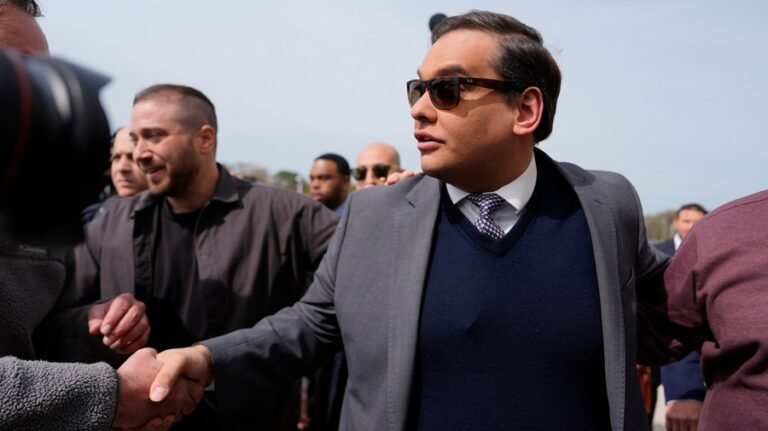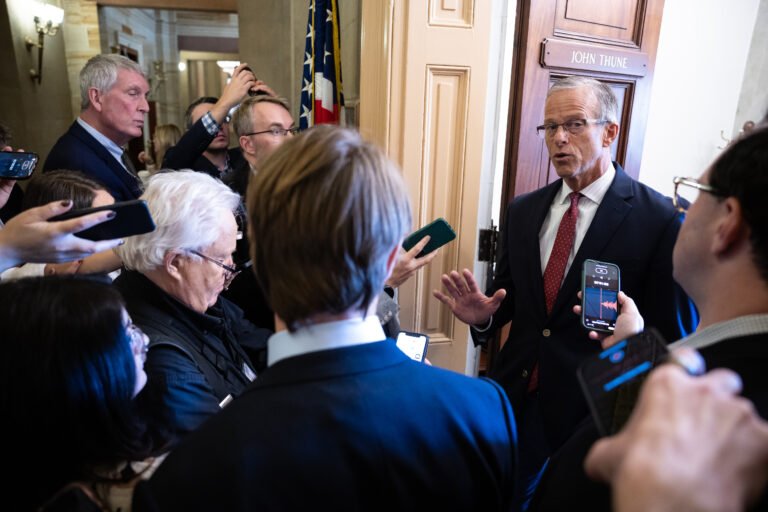
President Trump and NATO Secretary-General Mark Rutte have given Russian President Vladimir Putin something to help focus his mind. The July 14 announcement of a new NATO-backed weapons corridor into Ukraine, routed through European allies and structured around arms sales rather than grants, ends for now the prospect of a wholesale American abandonment of Ukraine.
Even if the new arrangement is cloaked in political deniability for Trump with his MAGA base and reinforces Trump’s shamefully transactional nature, it means that the U.S.-European alliance to support Ukraine is back on.
In their Oval Office meeting, Trump and Rutte repeatedly referred to a staggering figure: 100,000 Russian soldiers killed since January alone. It marked a rare moment of strategic clarity from Trump. He has noticed that Putin is in no rush to settle for a mere slice of eastern Ukraine, as candidate Trump clearly had expected he would. What Putin wants is a puppet in Kyiv so that Russia can control all of Ukraine.
This suggests that Putin really is serious about trying to reestablish the former Soviet Empire. This cannot be allowed. On the other hand, Putin’s regime has shown a willingness to engage in nuclear blackmail, and a cornered Kremlin may not be bluffing.
The new NATO structure for arming Ukraine grants President Volodymyr Zelensky time, and it also places NATO — which Trump once disparaged as obsolete — back as the centerpiece of a Western alliance that might actually still exist. That should alarm Putin, who, like Trump, made his own miscalculation that there is no limit to his ability to manipulate Trump.
But to end the war without another three years of attrition, more is needed — and Trump, ironically, is uniquely suited to deliver it.
Trump has the political license to challenge his base, scorn for diplomatic convention and a certain form of credibility — however grudging, fearful and disdainful — with leaders across the political spectrum. He can make a bold offer to test Putin’s seriousness and unstick this war.
Trump should say he is willing to recognize Russian sovereignty at the current battle lines, including a narrow land bridge to Crimea through parts of Zaporizhzhia, Luhansk and Donetsk that Russia already holds (about one-fifth of Ukraine’s land). This would not be moral approval, but sober acceptance of military reality. Ukraine is unlikely to retake these areas without years of fighting; the Ukrainians will likely grumble, but not much more than that.
Moreover, Ukraine would formally agree not to join NATO — addressing Russia’s central (if overstated) security concern and removing one of Putin’s main justifications for war.
In exchange, Ukraine would receive immediate bilateral security guarantees from major Western powers (similar to U.S. guarantees to Israel) and a fast-track path to joining the European Union — the actual engine of prosperity and guarantor of alignment with the Western democracies.
No, Trump cannot unilaterally promise EU accession. But that’s the point. He thrives on pressuring systems into doing what they otherwise wouldn’t. If he throws his political weight behind Ukraine’s EU integration, Brussels and European capitals will scramble to find a way forward. Ukraine will find a way to address concerns about corruption, its fiscal policies and so on.
Russia might even be offered amnesty and an end to economic sanctions. On the other hand, rejection of this deal could come with 500 percent U.S. tariffs on anyone still trading with Moscow. Decisive, outrageous, transactional — Trumpian. It would be a bit reminiscent of Trump’s announcement last month that the war between Israel and Iran was over, seemingly before the parties knew about it.
Versions of such a plan may have been discussed already, but not in public by the parties involved in this conflict. Words said publicly have another weight altogether. This is true in geopolitics in general, even if Trump’s own words (such as his Great Gaza Riviera plan from February) can be absurd.
Critics will invoke Munich, where Western powers handed Adolf Hitler the Sudetenland in a failed attempt to prevent war in 1938. But that analogy, while powerful, isn’t always instructive.
History offers examples where land concessions to aggressors — painful as they are — have helped end wars and preserve the sovereignty of the nation under threat. Successful examples include the deals that helped to end the Korean War, multiple wars between India and Pakistan, the Bosnian War in 1995 and the 2000 war between Ethiopia and Eritrea. Syria is today considering whether to concede part or all of the Golan Heights to reach a peace deal with Israel.
When done with clarity, backed by deterrence and paired with rewards that preserve and strengthen the sovereign state, an apparent capitulation can stop a war and sometimes even open paths to peace.
Putin may declare a victory. But if Ukraine gains EU integration, security guarantees and a Western future, then the core outcome of the war would still be a loss for Putin.
And if Putin refuses even that deal? Then Trump’s supporters might at last understand that the Russian dictator is an outlaw who must be thoroughly resisted. You cannot run away from every fight.
Dan Perry led Associated Press coverage in Europe, the Middle East and Africa, including the Israel and Iran bureaus. He publishes Ask Questions Later on Substack.





